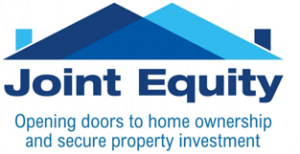Buy to Let tax hike will bite deep into profits
Buy-to-let investors have been battered by bad news over the past year which will have prompted many to consider what to do next.
The stamp duty hike that arrived with a bang at the start of April caught plenty of eyes, but it is the forthcoming cut to mortgage interest tax relief that will hurt many existing investors a lot more. The stamp duty is a one off hit the tax rise will hit every single year.
No longer will Buy to Let landlords be able to offset all their mortgage interest against their rental income and only pay tax on the profit in-between. Instead, the relief will be whittled away and replaced with a 20% tax credit against mortgage interest. For the large number of buy-to-let investors who pay 40% or 45% tax this will represent a sizeable hit.
Those punished the most will be landlords who took greatest advantage of borrowed money so increasing leverage to maximise capital growth.
 Mortgage broker London and Country gives the example of a landlord taking in rent of £1,250 a month, with mortgage payments of £900. All else being equal, as a 40% taxpayer they will see their tax bill rocket from £1,680 this year to £3,840 after 2020.
Mortgage broker London and Country gives the example of a landlord taking in rent of £1,250 a month, with mortgage payments of £900. All else being equal, as a 40% taxpayer they will see their tax bill rocket from £1,680 this year to £3,840 after 2020.
This takes post-tax profit down from £2,520 a year to £360 a year. That is an extreme example: the mortgage payments are high compared to the rent received, but it highlights how hard these changes could hit.
I imagine many landlords are still unaware of how their profits could be eaten, but between now and 2020 there is plenty of time for them to find out about it. The question will then be whether the effort and cost of being a landlord is worth it for the return they get.
As long as house prices keep rising they will have capital gains building up, but those who have made huge sums in profit from those rising values over the years will wonder whether it is worth cashing in. ]
 It has been suggested this could prompt a wave of sales, but the problem for buy-to-let investors who do cash in or those that want to continue to invest in UK residential property, but at a better return, is what to do with the money instead that will make a better return?
It has been suggested this could prompt a wave of sales, but the problem for buy-to-let investors who do cash in or those that want to continue to invest in UK residential property, but at a better return, is what to do with the money instead that will make a better return?
Many will look at the choice as simply property or cash, they won’t even consider investing it for an easy and relatively steady but low return from shares and bonds instead.
However, there is now a new way to invest in UK residential property without any hassle of being a landlord, which is simple straightforward and provides good rates of return.
JEIPs offer Joint Equity investment Bonds that offer either fixed returns or appreciating interest rates with attractive terminal bonuses either at a fixed annual rate or linked to Halifax Property Index. All Bonds are saleable so you are not locked in until maturity.

More information at the JEIP web site www.jeip.co.uk and at Joint Equityy www.jointequity.co.uk
